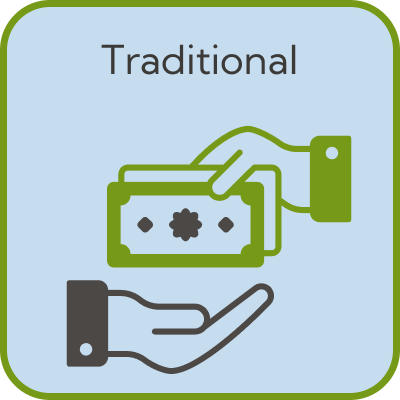Fundraise by participating in Self-organised hiking challenge!
Self-organised hiking challenge
Embark on a self-organized hiking challenge where you traverse through nature’s trails to raise funds for a noble cause. This event involves selecting a known hiking path or multiple trails and setting a goal to hike a certain distance or to complete a set of trails within a specific timeframe. You can customize the challenge by choosing a location that resonates with your personal story or the cause you are supporting, adding a meaningful layer to your fundraising efforts.
A self-organized hiking challenge is a fantastic way for charitable fundraising as it aligns the spirit of adventure with the act of giving. The physical endeavor matched with the scenic beauty often inspires people, making them more likely to support your cause. Additionally, it provides a tangible challenge that can stimulate higher donor interest and engagement. It’s an event that promotes health and well-being, further amplifying the positive impact of your fundraising campaign.
To organize your hiking challenge effectively, start by selecting a trail that matches your fitness level and resonates with your target audience. Ensure you have a clear understanding of the trail’s difficulty and terrain to prepare appropriately. Inform potential sponsors and participants about the specifics of the hike, including the distance, expected duration, and safety measures. Utilizing an online platform like Sponsivity for registration and donation collection simplifies the process and helps you track your fundraising progress.
Regarding the most suitable Sponsivity challenge types, the "Distance Challenge" model is ideal for a hiking event. This model allows donors to pledge an amount of money per mile you hike, directly linking their donations to your physical effort. This not only motivates you to push further but also keeps donors engaged as they follow your progress. Additionally, the "Time Challenge" can be incorporated if you decide to complete the hike within a certain timeframe, adding another layer of challenge and opportunity for sponsors to engage.
Moreover, consider using the "Challenge Chain" model by encouraging each donor or participant to take on a similar hiking challenge and pass the challenge forward. This can exponentially increase the reach and impact of your event, turning a single hike into a chain of actions fueling the charitable cause. By combining these models, you create multiple touchpoints for engagement, boosting the potential donations and success of your fundraising hike.
Remember to document your journey through photos and updates, sharing your progress not only to maintain transparency but also to inspire continuous support throughout the hike. With good planning and the power of Sponsivity’s innovative platform, your hiking challenge will be a rewarding experience for both you and the charitable cause you champion.

Sponsivity offers you several ways to raise for Self-organised hiking challenge


🚶 Walking – An Accessible & Inclusive Fundraising Challenge
Walking is one of the most accessible and inclusive ways to fundraise, making it ideal for participants of all ages and fitness levels. Whether it’s a personal step challenge, a long-distance trek, or a community walking event, walking-based fundraising is a great way to raise money while promoting physical activity and well-being.
Why Walking Works for Fundraising:
- Inclusive & Low-Impact: Walking is suitable for everyone, from young children to seniors, making it perfect for family-friendly and corporate fundraising events.
- Endurance & Achievement: Long-distance walks, such as marathon walks, charity hikes, or multi-day treks, provide a strong personal challenge that attracts donor support.
- Social & Team-Oriented: Walking challenges can be done individually or in groups, making them great for workplace fundraising, school events, or community initiatives.
- Easy to Track & Share: Fundraisers can log their daily steps, distance, or time, sharing progress with supporters through social media and fundraising pages.
Examples of Walking-Based Fundraisers:
- Step Challenge: “I’m walking 10,000 steps every day for a month—sponsor me per step!”
- Distance Challenge: “Support me as I trek 50 miles for charity!”
- Themed Walks: Fancy dress charity walks, night-time city walks, or virtual walking challenges add extra engagement.
Walking challenges offer a fun, healthy, and accessible way to raise funds while encouraging people to stay active and support a great cause!
Set bespoke rewards that suit walking
- Wear donor names on a walking vest
- Display a personalised thank-you sign and on the walk
- Videoed song dedicated to your donation
🥾 Hiking – A Scenic & Endurance-Based Fundraising Challenge
Hiking is a fantastic way to raise money for charity while exploring nature and pushing physical limits. Whether it's a local hill walk, a long-distance trek, or a multi-day adventure, hiking challenges offer fundraisers an exciting and rewarding way to engage their networks and support a cause.
Why Hiking Works for Fundraising:
- Accessible & Customizable: Hikes can range from beginner-friendly nature trails to extreme mountain ascents, making them suitable for all fitness levels.
- Endurance & Adventure: Completing a tough or long-distance hike creates a compelling story that motivates donors to contribute.
- Team & Solo Options: Hiking challenges can be done individually or in groups, making them perfect for corporate fundraising, school teams, or community events.
- Engaging Content for Supporters: Stunning landscapes and adventure-filled experiences make hiking challenges highly shareable on social media, increasing visibility and donations.
Examples of Hiking-Based Fundraisers:
- Distance Challenge: “I’m hiking 100 miles this summer to support mental health charities—sponsor me per mile!”
- Peak Challenge: “Help me reach my fundraising goal as I climb the Three Peaks for charity!”
- Multi-Day Trek: “Support my journey along the Inca Trail—every donation helps my chosen cause!”
Hiking challenges combine fitness, adventure, and charity, making them a highly engaging and effective way to fundraise while enjoying the great outdoors!
Set bespoke rewards that suit hiking
- Carry a flag your donor message to the summit
- Take a detour to location X
- Engrave donor message on a walking stick
💪 Physical Endurance – A Test of Strength & Stamina for Charity
Physical endurance challenges are some of the most demanding and rewarding ways to raise money for charity. These events push fundraisers to their limits, whether through long-distance running, cycling, swimming, or multi-hour challenges, making them highly compelling for donors. The harder the challenge, the more supporters are inspired to give.
Why Physical Endurance Works for Fundraising:
- High Engagement: Donors love to support fundraisers who commit to extreme endurance challenges, seeing their dedication as a strong reason to give.
- Scalable & Inclusive: Endurance events can range from personal step challenges to Ironman triathlons, making them accessible for all fitness levels.
- Long-Term Fundraising Potential: The extended training and preparation period allow fundraisers to build momentum and keep donors engaged.
- Great for Time & Distance Challenges: Fundraisers can challenge themselves to beat a time, achieve a distance, or push beyond their limits for charity.
Examples of Physical Endurance-Based Fundraisers:
- Marathon or Ultra Run: “Help me raise £2,000 as I take on my first 100K ultra-marathon!”
- Long-Distance Cycle Challenge: “I’m cycling 1,000 miles across the UK for charity—sponsor me per mile!”
- Extreme Fitness Challenge: “I’m doing 24 hours of non-stop exercise—every donation pushes me further!”
Physical endurance fundraisers inspire, challenge, and motivate, creating an unforgettable experience for participants and a powerful reason for supporters to donate.
Set bespoke rewards that suit physical endurance
- Playlist pick - any song of your choice repeated 3 times on my playlist!
- Photo eating your chosen race snack (max 50g!)
- 20 press-ups after the finishline
🧭 Exploration – Fundraising Through Adventure & Discovery
Exploration-based challenges take fundraisers on exciting journeys, whether it’s trekking through remote landscapes, discovering hidden landmarks, or completing a multi-day expedition. These challenges combine adventure, endurance, and curiosity, making them highly engaging for both participants and supporters.
Why Exploration Works for Fundraising:
- Inspires Donations: The sense of adventure and discovery makes exploration challenges compelling and shareable, encouraging more sponsorship.
- Scalable & Flexible: Challenges can range from urban scavenger hunts to long-distance expeditions, making them accessible to all levels.
- Great for Personal & Team Fundraising: Exploratory challenges can be done solo or as part of a group, allowing for corporate team-building fundraisers or solo endurance treks.
- Social Media Appeal: Stunning landscapes, cultural discoveries, and progress updates make for excellent engagement and storytelling.
Examples of Exploration-Based Fundraisers:
- Long-Distance Trek: “I’m hiking across the Scottish Highlands to raise £1,000 for conservation efforts!”
- City Scavenger Hunt: “Join me as I explore 50 historic landmarks in 24 hours for charity!”
- Multi-Day Expedition: “I’m taking on a 10-day solo trek through Patagonia—every donation supports my cause!”
Exploration fundraisers combine adventure with purpose, turning exciting journeys into powerful fundraising campaigns that captivate donors and make a real impact.
Set bespoke rewards that suit exploration
- Create a short storytelling video of the journey
- Pose for a selfie at landmark X
📅 Self-Organised – Fundraising on Your Terms
Self-organised fundraising challenges put you in control, allowing fundraisers to create a challenge that’s unique, personal, and tailored to their passions. Unlike organised events, self-organised challenges offer complete flexibility—whether it’s a solo endurance test, a creative personal challenge, or a community-driven activity.
Why Self-Organised Challenges Work for Fundraising:
- Full Flexibility: Choose the activity, location, and timing that works best for you, making fundraising accessible and achievable.
- Personal & Meaningful: Custom challenges allow fundraisers to connect with their audience by choosing something significant to them.
- Low-Cost & Inclusive: Without the need for event entry fees or logistics, anyone can participate, making it easy to involve family, friends, or colleagues.
- Perfect for Challenge Chain & Wager Models: Self-organised challenges can inspire others to join in, spreading the impact through viral nominations.
Examples of Self-Organised Fundraisers:
- Personal Running Challenge: “I’ll run 5K every day for a month—support my journey!”
- DIY Fitness Marathon: “I’m doing 1,000 push-ups in a day—every donation pushes me further!”
- Creative Challenge: “I’ll cycle across the country dressed as a superhero—help me hit my fundraising goal!”
Self-organised challenges allow fundraisers to turn their creativity, passions, and dedication into real impact, making it a powerful and accessible way to raise money for a cause.
Set bespoke rewards that suit self-organised event
- Rename the challenge in your honour
- Bring home-baked cookies to the finishline